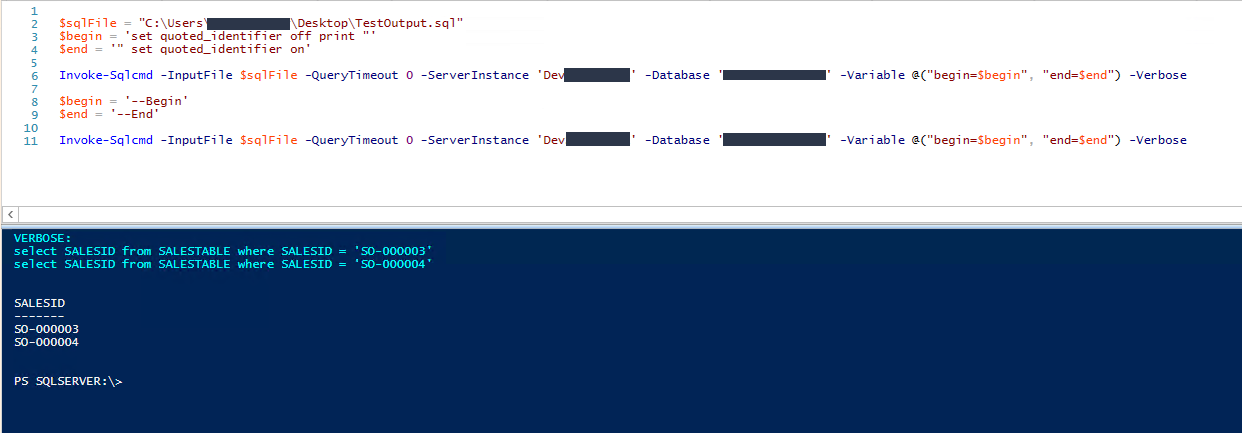I have a big *.sql file that I run with Invoke-Sqlcmd and variables to do some tasks, and when I have an issue, it's a pain to debug because of the variables and I want to do logging of the SQL script about to be run.
Is there a reasonably native way to produce the final SQL about to be executed with variable substitution without actually running?
Here's a sample I run to restore a *.bak to various environments for example:
Invoke-Sqlcmd -InputFile $sqlFile -QueryTimeout 0 -ServerInstance 'SQLServer' -Database 'Master' -Variable @("DatabaseBAK=$TransactDB", "Database=$TargetDatabase") -Verbose
SQL File:
USE [master]
print 'Killing connections to database $(Database)'
DECLARE @kill varchar(8000) = '';
SELECT @kill = @kill + 'kill ' + CONVERT(varchar(5), session_id) + ';'
FROM sys.dm_exec_sessions
WHERE database_id = db_id('$(Database)')
and session_id <> @@SPID
EXEC(@kill);
GO
USE [master]
print '[Info] RESTORE DATABASE [$(Database)]'
print '[Info] FROM DISK = N''$(DatabaseBAK)'''
print 'Starting restore-------------------->'
RESTORE DATABASE [$(Database)]
FROM DISK = N'$(DatabaseBAK)'
WITH FILE = 1
,NOUNLOAD
,REPLACE
,STATS = 5
GO
print '<--------------------End restore'
I would like to somehow just output the above with variable substitution the way Invoke-SqlCmd does it.

